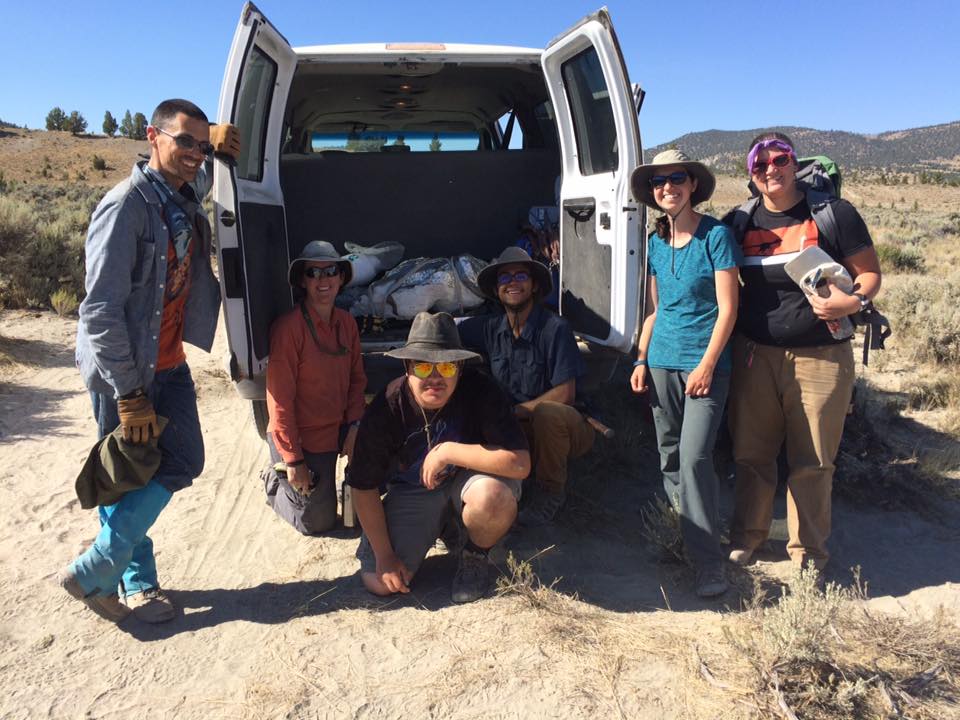Bonus field day!
Although it's technically another "office day" at camp, I returned to Logan Butte with an instructor and some classmates to collect what turned out to be a near-complete oreodont skeleton.
After the sweat and the tears. Photo courtesy Win McLaughlin.
We took turns, four at a time, carrying a several-hundred-pound lump of rock across terribly uneven terrain for a mile and a half. It was simultaneously not fun and incredibly awesome. (Mostly not fun.)
Thus does field camp come to its exhausting end. Of course, there's plenty left to be done with the material we've found: preparation, identification, study, etc. With so many disciplinary categories challenged, I'm left to wonder about one more.
We philosophers of science have devoted hundreds of thousands of pages to a distinction between experimental and historical sciences. (I tend to think it's a poor distinction, but to explain why would require devoting even more pages to the topic.) I've seen less work dedicated to a distinction between field sciences and lab sciences (although I'm sure there's some work out there). I keep remembering the advice that I've taken to heart: anal retentive works in the lab, but not in the field. Field work and lab work require different value judgments and epistemic tools. Given the current "replicability crisis" in the sciences, the field/lab distinction seems more robust than the repeatable/non-repeatable distinction between experiment and history.
Food for thought! More important now, though, is food for body, without which this journal will never make it back to civilization.
